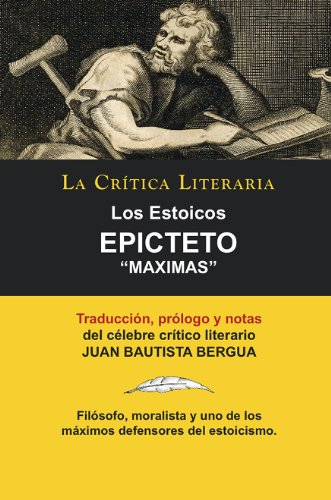Sublime
An inspiration engine for ideas
Stoicism – founded by Zeno of Citium and named after the Stoa, the covered walkway in the Athenian marketplace where this new philosophy was expounded – also saw happiness in terms of tranquillity and, like Epicureanism, its approach centred on ensuring the absence of pain. Stoics taught, along with the Epicureans, that we should limit our desires,
... See moreDerren Brown • Happy: Why More or Less Everything is Absolutely Fine
a student of Antisthenes and went on to become the most famous Cynic. In defense of simple living, Diogenes observed that “the gods had given to men the means of living easily, but this had been put out of sight, because we require honeyed cakes, unguents and the like.” Such is the madness of men, he said, that they choose to be miserable when they
... See moreWilliam B. Irvine • A Guide to the Good Life: The Ancient Art of Stoic Joy
On the biological level, both our expectations and our happiness are determined by our biochemistry, rather than by our economic, social or political situation. According to Epicurus, we are happy when we feel pleasant sensations and are free from unpleasant ones.
Yuval Noah Harari • Homo Deus
“Don’t seek for everything to happen as you wish it would, but rather wish that everything happens as it actually will—then your life will flow well.” —EPICTETUS, ENCHIRIDION, 8
Ryan Holiday • The Daily Stoic: 366 Meditations on Wisdom, Perseverance, and the Art of Living: Featuring new translations of Seneca, Epictetus, and Marcus Aurelius
The only limit to wealth, according to Seneca, is “First, having what is essential, and second, having what is enough.”
Jason Hemlock • Stoicism: How to Use Stoic Philosophy to Find Inner Peace and Happiness
If you wish to have peace and contentment, release your attachment to all things outside your control.
Epictetus • The Manual: A Philosopher's Guide to Life
Stoicism was a school of philosophy founded in Athens by Zeno of Citium in the early third century BC. Its name is derived from the Greek stoa, meaning porch, because that’s where Zeno first taught his students. The philosophy asserts that virtue (meaning, chiefly, the four cardinal virtues of self-control, courage, justice, and wisdom) is
... See moreStephen Hanselman • The Daily Stoic: 366 Meditations on Wisdom, Perseverance, and the Art of Living
Los Estoicos: Epicteto: Maximas; Colección La Crítica Literaria por el célebre crítico literario Juan Bautista Bergua, Ediciones Ibéricas
amazon.com
Drop everything
Drop everything that dissatisfies you. Drop everything that satisfies you. Fully open to how things are now.